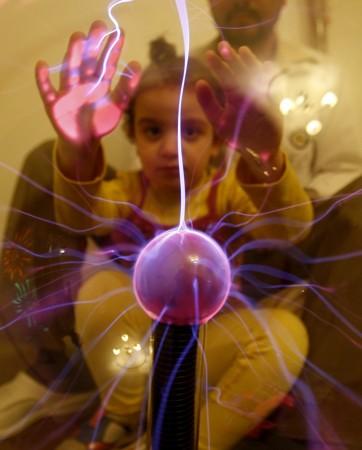
A new study has linked autism spectrum disorder (ASD) in children to maternal preeclampsia, a disorder in pregnancy that triggers hypertension.
Researchers from the UC Davis School of Medicine in US found that women who suffered from preeclampsia in pregnancy were twice as likely to have children with autism, a term used to describe a group of disorders that affects the normal development of the brain.
It is estimated that one in every 160 children in the world is suffering from autism, a disorder which makes social interaction, verbal and non-verbal communication a difficult affair.
For the study, researchers looked at nearly 1,000 toddlers from the CHARGE Study (Childhood Risks of Autism from Genetics and the Environment).
Results showed that exposure to preeclampsia while in mother's womb increased a child's risk of developing autism. The risk went up with the severity of the condition.
Placental insufficiency and severe preeclampsia in pregnancy were more common in women who had children with autism or developmental delays. These children also had lower cognitive abilities compared to children of women who did not develop the condition.
An improper supply of nutrient and oxygen to the foetus can cause oxidative stress and prompt protein being released in the maternal bloodstream, the authors while explaining the link between the two, said.
"We found significant associations between preeclampsia and ASD that increased with severity. We also observed a significant association between severe preeclampsia and developmental delay," senior author of the study Cheryl Walker, said in a news release.
The study has been reported in JAMA Pediatrics.
Similar to the study, previous research has linked gestational hypertension and pre-eclampsia to poor birth outcomes (premature birth, low birth weight, lowered intelligence levels in children) and cardiovascular diseases in mothers.
Pre-eclampsia is known to pose severe health risks to both the mother and her baby. Women suffering from pre-eclampsia will have high blood pressure, fluid retention and protein in the urine, which further affects their unborn baby's proper growth in the uterus. Sometimes, the condition develops into eclampsia, a pregnancy complication with seizures and coma.





!['Had denied Housefull franchise as they wanted me to wear a bikini': Tia Bajpai on turning down bold scripts [Exclusive]](https://data1.ibtimes.co.in/en/full/806605/had-denied-housefull-franchise-they-wanted-me-wear-bikini-tia-bajpai-turning-down-bold.png?w=220&h=138)



